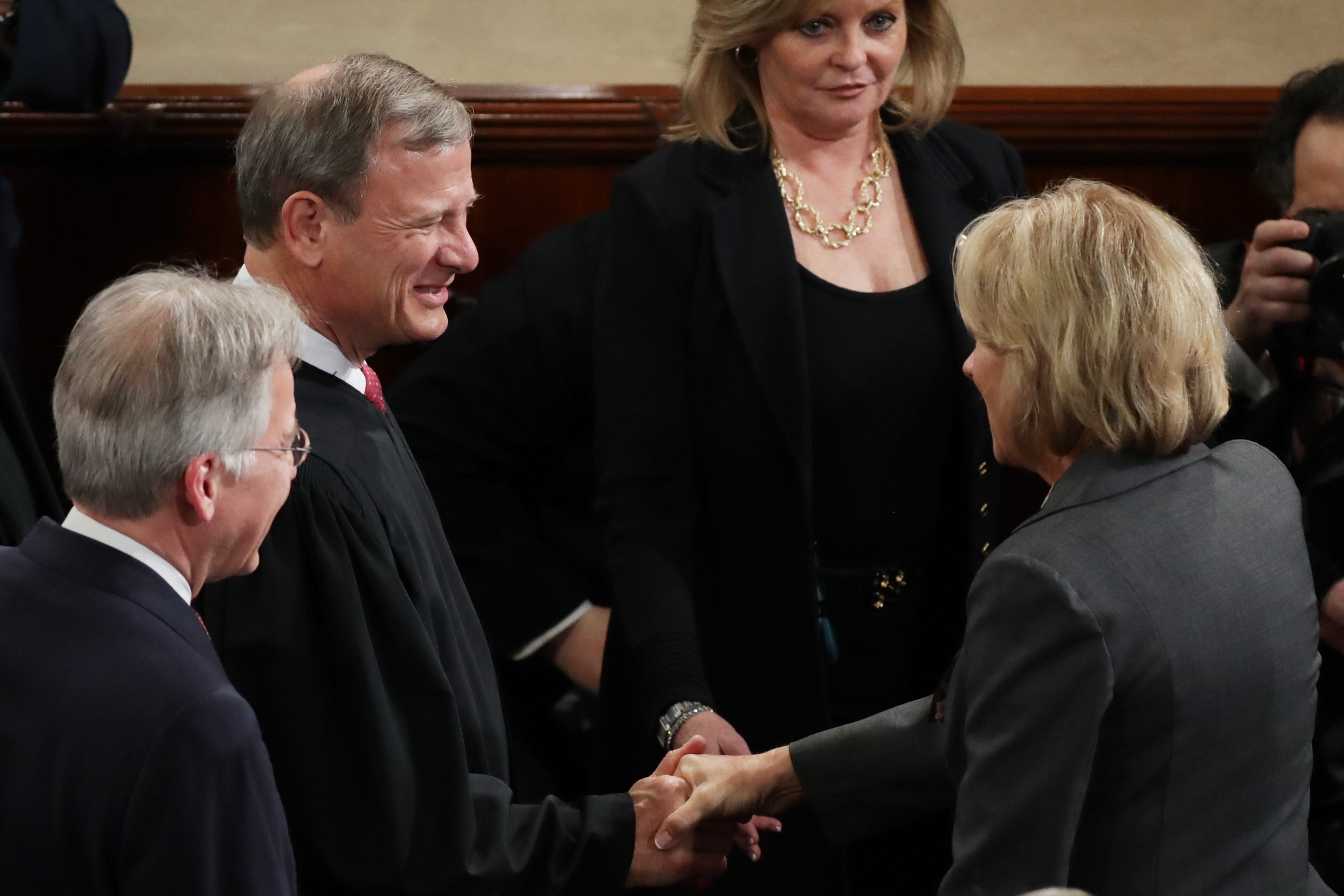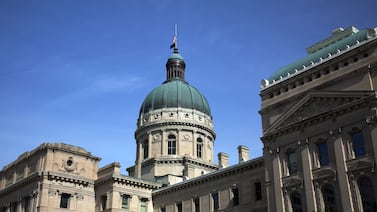The law is clear: In order to be eligible for federal charter grants, charter schools must not be “affiliated with a sectarian school or religious institution.”
But Education Secretary Betsy DeVos said earlier this week that she will no longer enforce this prohibition. Religious organizations should feel free to apply for federal money to open charter schools, she said, and a recent Supreme Court ruling is on her side.
“Prohibiting religiously affiliated public charter schools is unconstitutional,” DeVos said at a forum in Kentucky. “The Department of Education in the Charter School Program will not discriminate and will allow for and welcome religiously affiliated applicants.”
It’s not clear that DeVos’s move will prompt immediate changes in who tries to start charter schools, and it could be reversed by a Biden administration if President Trump loses reelection next week. But it amounts to the first shot fired in what’s likely to be a lengthy legal battle over charter schools and religion in the wake of two recent Supreme Court decisions.
Those decisions focus on how private schools can access public money. Neither explicitly addresses charter schools. But an analysis by the U.S. Department of Justice after the first ruling — dated February of this year but released by the education department this week — concluded that barring religiously affiliated charter schools from receiving federal money is unconstitutional.
“Forbidding charter schools under the program from affiliating with religious organizations discriminates on the basis of religious status,” reads the document, signed by deputy assistant attorney general Henry Whitaker.
Preston Green, a education law professor at the University of Connecticut who has written extensively about the legal status of charter schools, agrees with the department’s analysis. “I think that legally they’re on strong ground,” he said.
He noted that the Trump administration’s analysis still doesn’t seem to allow for federal money for charter schools run in a religious manner, but said this could be a step in that direction. This “is a further advancement of what they want in the end, which I think is direct funding of religious education,” he said.
The nation’s over 7,000 charter schools are typically publicly funded and approved, operated by nonprofit boards, and defined in state and federal law as “public.”
It’s unclear whether any charter schools nationwide are currently affiliated with religious institutions, and if so, how many. Nina Rees, president of the National Alliance for Public Charter Schools, said the organization does not know of any and does not track the issue.
Some charter schools have toed the church-state line, though. Last year, the U.S. Department of Education said it was fine for a Tennessee charter school that had promised to avoid teaching topics considered by the Catholic church to be “gravely immoral” to receive federal money. Hillsdale College — a Christian school where DeVos recently spoke — runs an initiative that helps create charter schools and then provides them with curriculum and teacher training.
A number of states bar religious organizations from directly running charter schools over concerns about the separation of church and state.
But the two recent cases have indicated that the Supreme Court is skeptical of restrictions that keep religiously affiliated schools from receiving benefits, including public funding, available to other schools.
In 2017, the court ruled that Missouri could not bar religious private schools from receiving public money for playground resurfacing simply because they were religious. In June, the Court struck down a Montana rule that barred religious private schools from participating in a tax-credit funded voucher program. (In his dissent, Justice Stephen Breyer noted that the logic would seem to apply to charter schools, though the majority opinion doesn’t mention them.)
DeVos’ announcement won’t directly affect state prohibitions on charter schools affiliated with a religious organization, but signals they could be subject to legal challenge.
It also doesn’t mean that any charters would be allowed to be truly religious schools. The Justice Department’s analysis does not indicate that a charter school could provide religious education, only that they could be run by a religious organization.
Rees says it should stay that way. “Of course charter schools are always fully public schools and must observe the separation of church and state guidelines that all public schools observe,” she said in a statement.
Others want charter schools to be able to go a step further.
“I would prefer religious schools to be religious,” Nicole Garnett, a law professor at Notre Dame, said during a recent event discussing the possibility of religious charter schools.
She argues that since charter schools are generally run by private boards, rather than by governments, they aren’t “the state” at all — and thus can’t violate the separation of church and state. “If they’re private actors and they are schools of choice, then I think they can be authentically religious,” she said.
Charter schools may be an appealing vehicle for creating a religious school because, unlike most private schools, they are supported with substantial public funding. But they also come with more regulations, like state testing mandates and rules barring selective admissions or discrimination based on sexual orientation.
This highlights a further complication: what happens if charter school regulations clash with religious practices?
“There are going to be enormous challenges,” Karega Rausch, the president of the National Association of Charter School Authorizers, said at the same event. “Who’s allowed to come to school? Who gets preferential or not access? Who’s allowed to teach? Who’s allowed to get hired and fired, and importantly, for what reasons?”
All of these issues could take time to wind their way through the courts. “I expect this would be tied up in litigation for a long time,” said Garnett.





